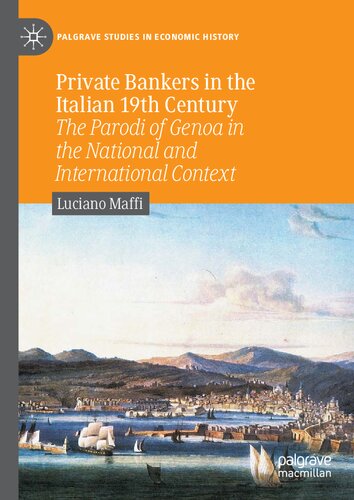

Most ebook files are in PDF format, so you can easily read them using various software such as Foxit Reader or directly on the Google Chrome browser.
Some ebook files are released by publishers in other formats such as .awz, .mobi, .epub, .fb2, etc. You may need to install specific software to read these formats on mobile/PC, such as Calibre.
Please read the tutorial at this link: https://ebookbell.com/faq
We offer FREE conversion to the popular formats you request; however, this may take some time. Therefore, right after payment, please email us, and we will try to provide the service as quickly as possible.
For some exceptional file formats or broken links (if any), please refrain from opening any disputes. Instead, email us first, and we will try to assist within a maximum of 6 hours.
EbookBell Team

4.1
60 reviewsThe book analyses the role of private bankers who were pivotal in modernizing the economic and financial system of Italy in the XIX century. To achieve this they needed to interact with the international haute banque to organize and place the public loans and the large investments associated with the joint-stock companies.
The theme of reputation, which is currently at the centre of the historiographical debate, is fundamental for the study of the private banker figures, whose professional success is linked to the limitless trust accorded to them by their circle of personal contacts. Historiography has studied the role of Italian bankers in the trade, credit and international finance during the modern age (XVI-XVIII centuries), but it has not analysed the banking system in the XIX century and its national and international relations.
The case study of Banca Parodi of Genova fills the historiographical gap concerning the role of private bankers and banking institutions in Italy, highlighting the network between the Parodi family and the international haute banque; one of the most emblematic cases is the Rothschild family. The book presents a re-elaborates series of unpublished data, placing them at the disposal of the scientific community and analyses the role of private bankers in the development of Italian banking institutions in the XIX century to launch a scientific debate.